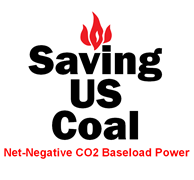
 






.gif)



|
Signature Sponsor


March 5, 2023 - Governor Glenn Youngkin’s push to end the commonwealth’s participation in a regional climate compact is now open to public comment and has faced a flood of mostly negative feedback. Since the online town hall portal opened on Jan. 30, over 1,000 Virginia residents have shared their thoughts on Youngkin’s proposal, which would effectively gut the carbon cap-and-trade provisions of the Regional Greenhouse Gas Initiative (RGGI).
So, what are they saying?Of the 500 most recent comments, just 10 were in support of the governor’s proposal, with the vast majority criticizing the governor’s plan, requesting that he rethink the proposal or simply berating him and his appointees. Dr. Damian Pitt, who researches carbon reduction measures at VCU, focused on the program’s allocation of proceeds from the sale of carbon credits to flood prevention and energy assistance for low-income households. “This average of $125 million per year is more than double the amount of money otherwise available from federal, state, and utility programs that invest in low-income energy efficiency in Virginia,” he wrote. “Stop being a tool, Youngkin,” wrote another commenter identified as Mike H.
Of the few residents who did write in support of Youngkin’s proposal, many emphasized the perceived unreliability of renewable energy sources. “The road to hell is paved with good intentions. RGGI will create an unreliable power grid since reliable thermal energy generation will be replaced with unreliable wind and solar energy,” wrote Geoffrey Pohanka. The plan also drew opposition from Richmond Mayor Levar Stoney, who wrote in his own public comment, “Richmond has received $1,246,047 in RGGI Community Flood Preparedness Fund (CFPF) funding that is increasing flood protection and improving public safety in some of the most vulnerable and underserved neighborhoods in our community.” Macauley Porter, Youngkin’s press secretary, told 8News, “The administration will consider comments presented during the public comment period.”
What’s the law?Virginia’s participation in the RGGI, and specifically in the carbon cap-and-trade market, is required under a law passed in 2019, which states in part, “The Director is hereby authorized to establish, implement, and manage an auction program to sell allowances into a market-based trading program consistent with the RGGI program (…) unless the Department finds that doing so will have a negative impact on the value of allowances and result in a net loss of consumer benefit.” In his arguments for rolling back the carbon credit auctions, Youngkin has focused on the “net loss of consumer benefit,” writing in his executive order that “Virginia’s participation in the Regional Greenhouse Gas Initiative (RGGI) risks contributing to the increased cost of electricity for our citizens.” Under the RGGI, utilities like Dominion are essentially required to purchase carbon credits for every ton of CO2 and other pollutants added to the atmosphere. They can either use these credits to cover their own generation or sell them to other companies. At the same time, the total number of credits is intended to drop each year, incentivizing companies to reduce their emissions. Porter implied the administration would pursue the regulatory appeal in its current form regardless of the public comments submitted, writing, “Virginians will see a lower energy bill in due time because we are withdrawing from RGGI through a regulatory process.” Porter characterized the RGGI framework as a “regressive tax.” Under Virginia law, Dominion and other public utilities are allowed to pass the cost of carbon credits to consumers — but so far, that’s amounted to just under $30 a year for the average resident. In 2022, Dominion gained approval for an estimated $2.39 monthly increase to the average resident’s power bill to adjust for the cost of the carbon credits. That same year, Dominion was granted a $14.93 monthly increase to cover spiraling fuel costs for natural gas, coal and petroleum power plants. Those fuel costs could theoretically be offset by the introduction of more renewable power, which is incentivized under the RGGI, as several recent studies have found that solar and wind energy have a cheaper per-unit cost than natural gas and coal. Youngkin has also received large campaign donations from fossil fuel producers, including $680,000 from the Gilliam family, who made their fortune in coal extraction in western Virginia. Neither Youngkin’s executive order nor the state’s economic analysis of the program mention “a negative impact on the value of allowances” created by continuing to participate in the RGGI, the other statutory requirement for discontinuing the cap-and-trade auctions. Youngkin also attempted to withdraw the commonwealth from the RGGI through the legislature, which would have avoided a long and contentious regulatory process, but was stymied by Democrats in the state senate. Dollars and CentsAn economic impact analysis commissioned by the Youngkin administration as part of the regulatory process found that since the sale of carbon caps began in 2021, the state has reaped $523 million from the auctions. That money primarily went to flood prevention programs (totaling $235 million) and low-income energy assistance programs ($261 million). The Youngkin administration has previously stated that if the state leaves the RGGI, funding for those programs might be cut off entirely or see sharp reductions. The report found that those costs would for the most part be passed on by Dominion, Appalachian Power and other public utilities to consumers in the form of the $2.39 monthly rate increase.  The report did find some evidence that the program was successful in reducing carbon emissions, but cautioned that they didn’t “have any specific information with which to assess the factors that may have contributed to this reduction.” You can submit comments online through the state’s townhall portal until the end of March. |
 











|